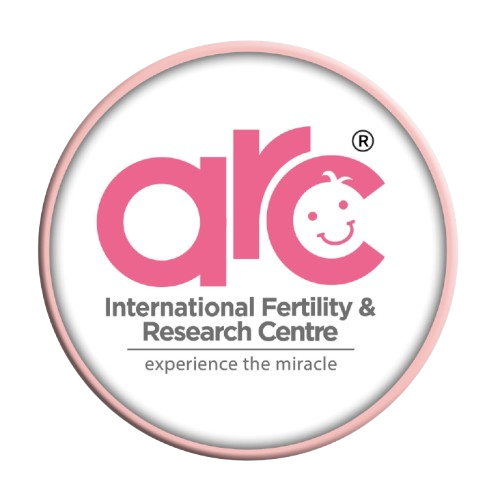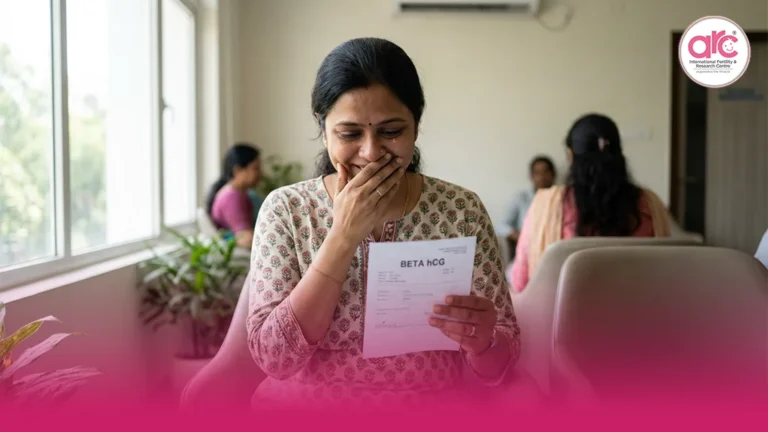Overview
IVF failure is not the end. It is information.
Every result, even the disappointing one, teaches you how your body responds, how your plan needs to change, and what must improve before you try again.
As a trusted Fertility Hospital in Chennai, we tell every couple the same truth — success in fertility treatment is rarely instant. It is built, corrected, refined, and finally achieved.
Let’s look at how to handle IVF failure clearly, without losing direction.
Know What Failure Really Means
IVF doesn’t fail because you did something wrong.
It fails because biology is complex.
A perfect-looking embryo can still miss implantation. Hormones can fluctuate. The uterine lining may not be ready that cycle. Sperm or egg quality can shift between attempts.
Even low sperm count can influence fertilization outcomes.
A failed cycle simply means one attempt didn’t align. It’s not the final verdict on your body or your future.
Review Before You React
When a cycle fails, the first response shouldn’t be panic. It should be a review.
Sit down with your doctor. Ask questions that matter —
What happened at each stage?
How did my eggs respond to stimulation?
Was the timing or medication right?
Could embryo quality be improved?
If you don’t know what to ask, start with the 10 questions to ask during your first consultation. The same questions apply here, because every answer reveals what to refine next.
This process turns a setback into data. And data, when interpreted right, builds success.
Take a Short Break, Not a Long Pause
Your body needs a reset before another attempt.
Usually one natural menstrual cycle is enough. This allows hormone levels to stabilize and helps the uterine lining recover.
Use this time wisely.
Eat balanced food, rest well, and move daily.
Cut caffeine and alcohol.
Sleep at least seven hours.
When you treat recovery as preparation, the next cycle starts stronger.
Re-evaluate the Plan
IVF is not one formula repeated. It is a process adjusted every time.
After a failed attempt, your doctor will study your chart:
- Were the eggs mature enough?
- Did fertilization rates drop?
- Were embryos transferred too early or too late?
- Did the uterus look receptive?
Small changes make big differences. Sometimes it’s just altering medication dosage. Sometimes it’s shifting transfer timing by a day. Sometimes it’s using ICSI when sperm parameters fluctuate.
Progress in IVF comes from precision, not repetition.
Keep Perspective on Probability
IVF is powerful, but it is not absolute.
The average success rate per cycle ranges from 40–60% for women under 35 and reduces gradually with age.
This means several couples need more than one cycle.
Each round increases knowledge — how the ovaries react, how embryos develop, how the body behaves under stimulation.
That learning is what makes the next attempt better planned, not luckier.
Strengthen the Basics
The foundation of fertility doesn’t change:
- Maintain healthy weight and regular exercise.
- Control thyroid and sugar levels.
- Stay consistent with supplements recommended by your specialist.
- Keep stress under control — not by ignoring it, but by structuring your day.
Reproductive medicine works best on a stable lifestyle. The treatment is advanced, but the preparation is simple.
Stay Logical, Not Emotional
IVF demands emotional control as much as physical readiness.
It’s natural to feel disappointed, but decisions should come from logic, not frustration.
Before starting the next cycle, check three things:
- Are you medically ready?
- Are you financially ready?
- Are you mentally steady enough to go through the process again?
If the answer to all three is yes, begin again. If not, take time to rebuild.
As a Top Rated Fertility Hospital in Chennai, we prefer couples to start when they are calm and prepared — not when they are rushing to correct a result.
Keep Communication Open
After failure, many couples stop discussing their treatment. That silence adds pressure.
Share updates, talk through options, and divide responsibilities. When both partners understand the process, decisions become lighter.
Fertility treatment is teamwork. Both voices matter equally.
Know When to Re-Test
If you’ve had more than one failed cycle, additional investigations may be needed — such as genetic testing for embryos, endometrial receptivity analysis, or advanced semen testing.
Conditions like low sperm count or chromosomal issues sometimes reveal themselves only after multiple cycles. Identifying them early saves time and cost later.
Your doctor will decide which tests make sense for you — not all couples need the same evaluation.
Don’t Measure Yourself by Others’ Timelines
Every fertility story moves differently.
Comparing your journey with someone else’s only builds frustration.
Focus on what can be improved, not on who succeeded faster.
The question isn’t when it will work — it’s what can make it work better next time.
That’s the difference between chasing results and building them.
The Summary
- Failure means feedback.
- Review, don’t react.
- Rest, then refine.
- Stay consistent.
- Try again with clearer data and calmer mind.
IVF is not a single test of success. It is a structured process that moves closer to success with every controlled step.
At ARC Fertility Hospital in Chennai, we guide every couple through that process carefully — from evaluation to preparation to execution — because confidence grows when understanding replaces fear.
A failed cycle is not your finish line. It’s your first draft.
The next one is written better, with experience behind it.
ARC Fertility Hospital in Chennai — advancing fertility care through precision, clarity, and patient confidence.




